Call of Duty: Portraits of Frontline Workers in Boston
Edited by Brittany Jasnoff with additional reporting by Catherine Elton and Scott Kearnan
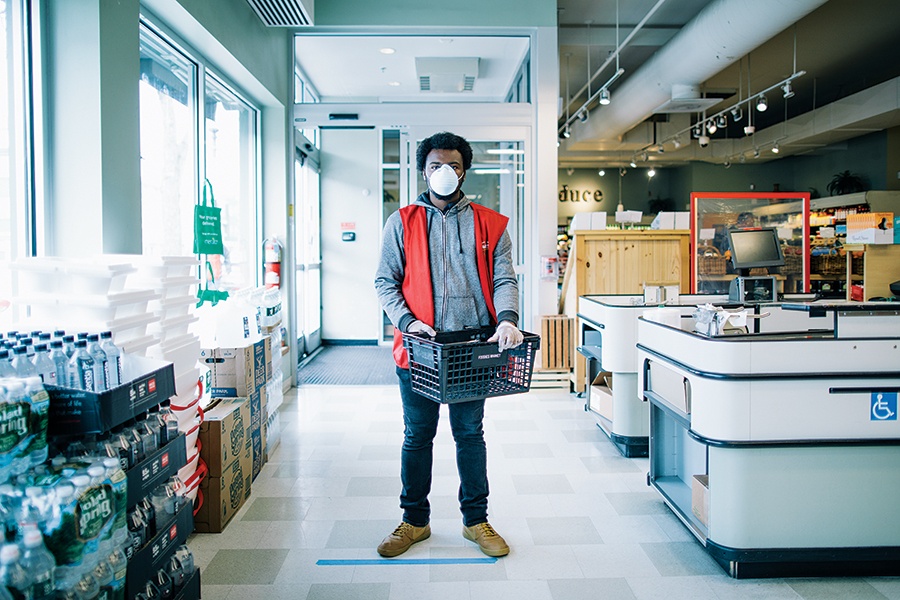
Photo by Matt Kalinowski
Chad Williams
Cashier, Foodie’s Urban Market
“There was a time at the beginning when I thought that not working was the best idea, because I come from so far away in East Boston on public transportation. But my mom encouraged me to keep working because other people were beginning to not come in, and she thought the store might be very shorthanded. Before all this, I just thought of this as a plain old job; I didn’t feel like I was an essential part of the community. I feel that now. It makes me proud that I am working here and that I didn’t stop or quit.”
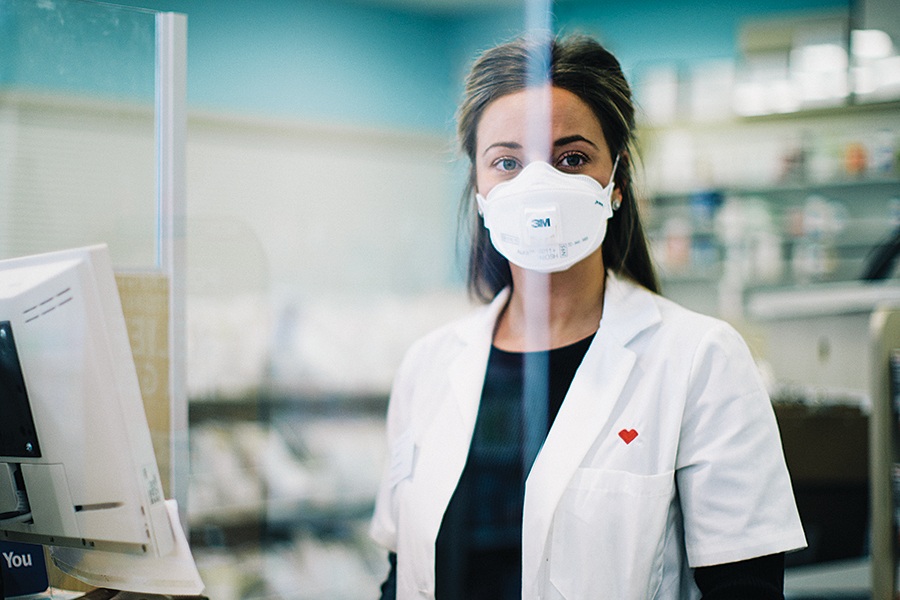
Photo by Matt Kalinowski
Jenna Pollock
Pharmacist, CVS Seaport
“No one here has gotten sick, and everyone has showed up to work. At the beginning when my staffers were nervous, I gave them a pep talk. I said, ‘We are here to help people. It’s our job, and, not to sound corny, you are going down in history as a front-line worker during the COVID-19 crisis.’ I went to pharmacy school to be a pharmacist and help people, not to step back.”
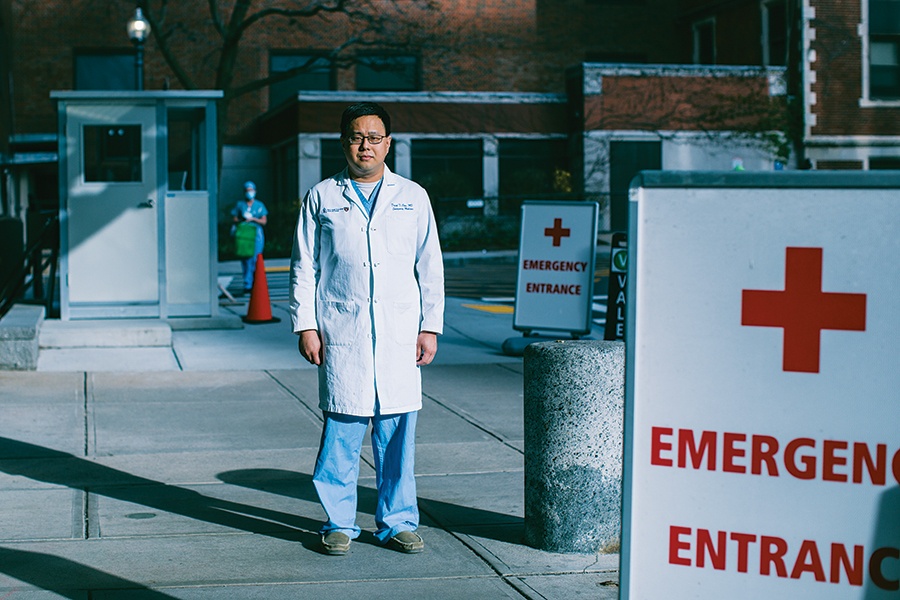
Photo by Matt Kalinowski
David Chiu
Director of Operations and Attending Physician, Beth Israel Deaconess Medical Center Department of Emergency Medicine
“I know a lot of doctors who have sent their families away and are living alone, or the doctors themselves have moved out of the house. There are no good options in this, right? Either you’re separating yourself from your family, which might give you a little bit of psychological relief but is emotionally draining, or you’re still taking care of your kids and then you’re always worried, like could I be passing this on?”
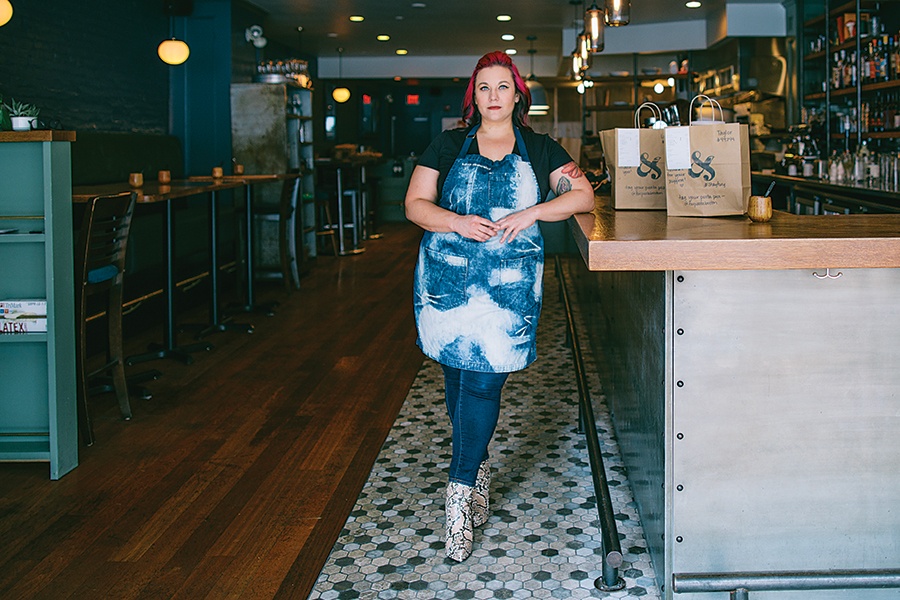
Photo by Matt Kalinowski
Karen Akunowicz
James Beard Award–Winning Chef, Fox & the Knife and SloPoke
“Every day since we started doing takeout, I’ve gotten emails, DMs on Instagram, and people walking in the door and shouting at me across the room—saying, ‘Thank you, thank you, thank you for staying open. Thank you for creating something normal. Thank you for giving us something that is a bright spot.’ I have the same fears as everybody else, but when that is the overwhelming response we’ve gotten, it’s hard to not do this. I don’t think every restaurant owner can make takeout work for a million reasons. But I felt like I would really regret it if I hadn’t tried.”
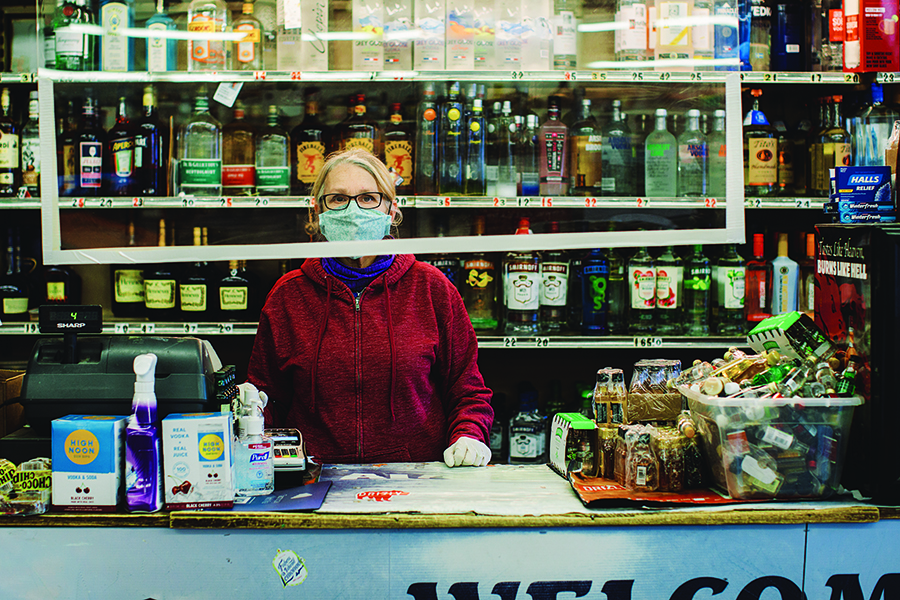
Photo by Matt Kalinowski
Christine Carney
Co-owner, Al’s Liquors
“Nurses and doctors want us to stay open. The way we look at it, if we don’t stay open, what’s going to happen to all of the people who are going to go through withdrawal? They’d end up flooding the emergency rooms. We consider ourselves essential because we want to keep people healthy, too. You don’t want people getting sick because they can’t access alcohol right now. That’s our goal: We want to help out in any way possible.”
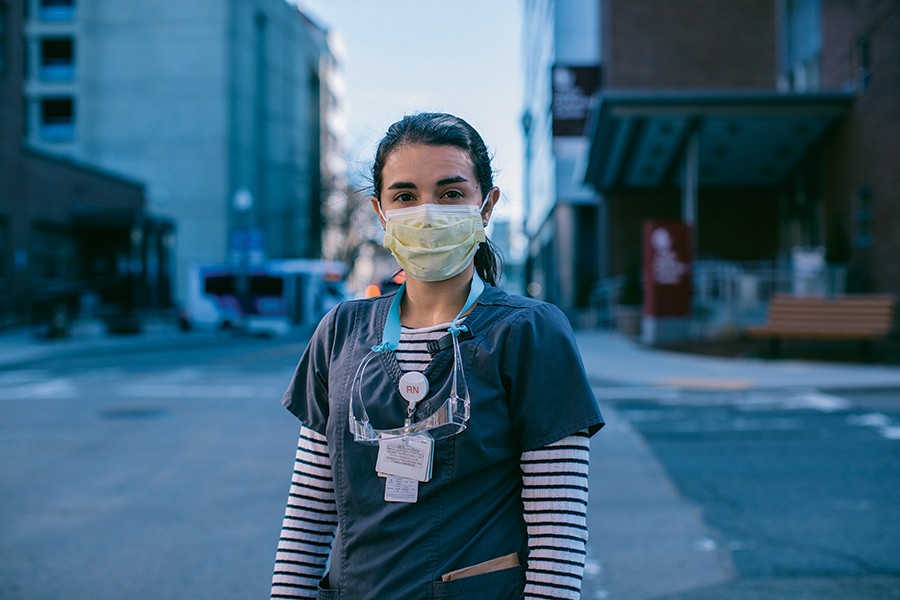
Photo by Matt Kalinowski
Emily Lewin
Registered Nurse, Beth Israel Deaconess Medical Center Department of Emergency Medicine
“Everybody’s learning every day how to go about this—how to protect ourselves, how to properly move patients through the halls when they’re positive for coronavirus, how to clean the rooms best. Sometimes it can be really stressful, but other times it’s bringing out a sense of togetherness. We’re all used to taking care of sick patients, so while this is a different virus we’re not used to, it’s still the same.”
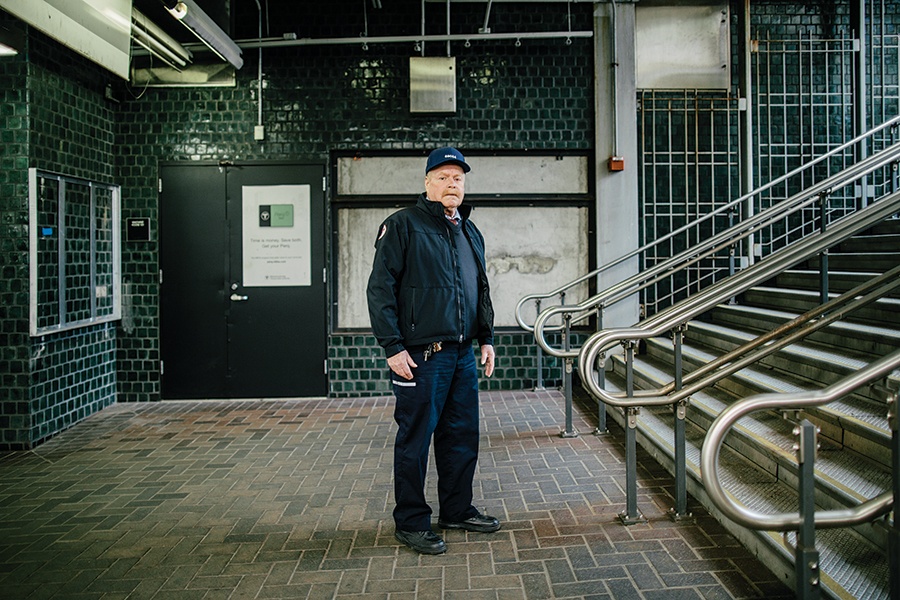
Photo by Matt Kalinowski
Charlie Toohey
Green Line Operator, MBTA
“It’s a very eerie feeling going through Park Street between 3:30 to 6:30 at night, when it’s usually pretty jam-packed with passengers. It’s a ghost town now. I have a few people who get on at Park Street, ride out to Riverside, and then get off at the end and cross the line over the tracks and wait for a train to go back to Boston. Just for something to do, I guess—or maybe they are so used to having a daily routine that they think they might miss something if they don’t take a train ride. Those are the die-hards.”